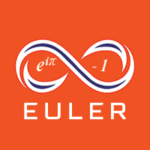Introduction
Artificial Intelligence (AI) has revolutionized various aspects of our lives, and the realm of academia is no exception. From simplifying administrative tasks to enhancing research capabilities, AI has made its mark in the educational sector. In this blog, we delve into the profound impact of AI on the work of university professors, specifically focusing on how it is transforming the assessment and grading of academic papers.
The Role of AI in Assessing Academic Papers
AI plays a pivotal role in streamlining the assessment of academic papers by offering sophisticated tools for evaluating content, structure, and originality. Through natural language processing algorithms and machine learning techniques, AI can quickly analyze and provide valuable insights into the quality of written work.
Impact of AI on Grading Processes
One of the key advantages of AI in grading academic papers is its ability to provide consistent and unbiased evaluations. By setting predefined criteria and benchmarks, AI systems can assign grades objectively, eliminating potential human biases. Moreover, AI-powered grading tools are efficient in providing timely feedback to students, enabling them to improve their writing skills effectively.
Challenges and Limitations of AI in Academic Assessment
Despite its numerous benefits, the adoption of AI in academic assessment poses certain challenges and limitations. One of the primary concerns is the risk of oversimplifying complex concepts and overlooking nuanced aspects that require human judgment. Additionally, ensuring the security and integrity of AI-generated evaluations remains a critical issue that needs to be addressed.
Future Implications and Considerations
As AI continues to evolve, its impact on the work of university professors in assessing and grading academic papers is expected to expand further. Educators need to adapt to the changing landscape by embracing AI tools and incorporating them judiciously into their teaching practices. It is essential to strike a balance between leveraging AI for efficiency and preserving the human touch in education.
Conclusion
In conclusion, the integration of AI in the assessment and grading of academic papers represents a significant advancement in the field of education. While AI offers unprecedented opportunities to enhance the efficiency and accuracy of evaluation processes, it is crucial to recognize its limitations and work towards mitigating potential challenges. By harnessing the power of AI responsibly, university professors can enrich the academic experience for both educators and students alike.









